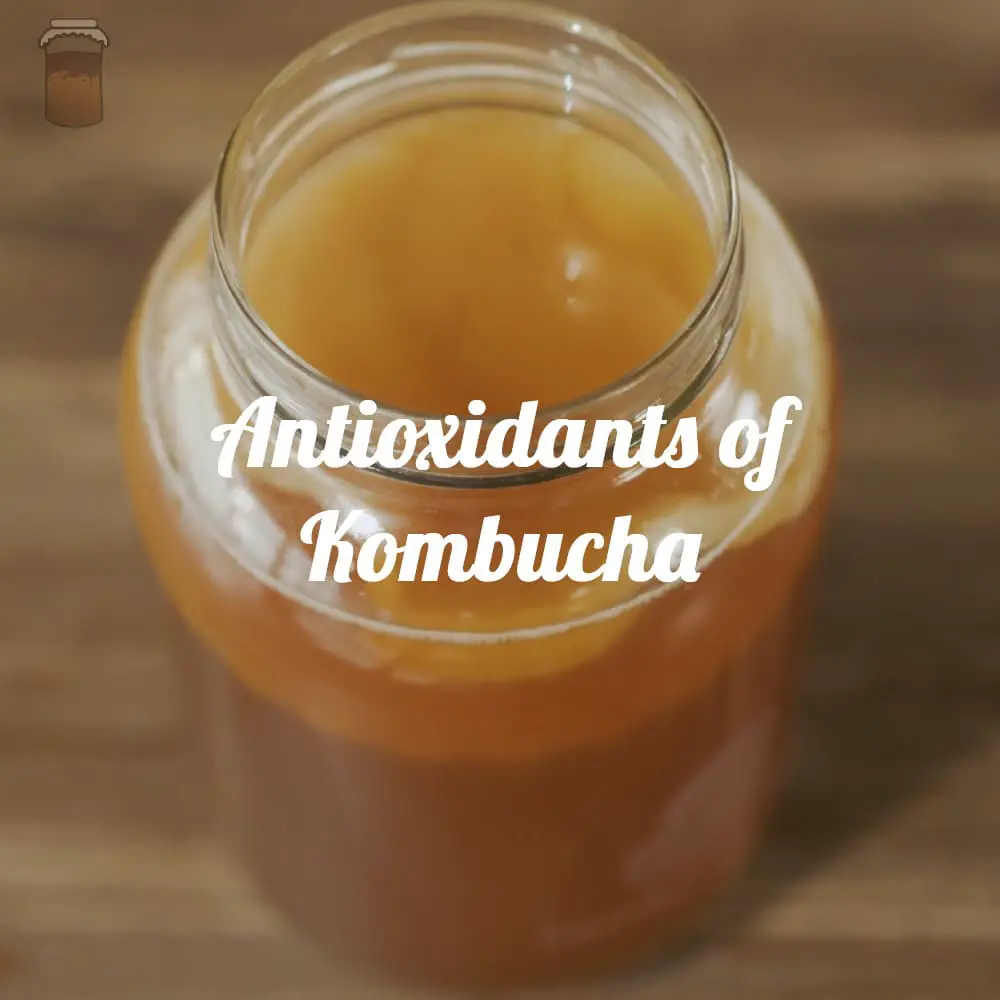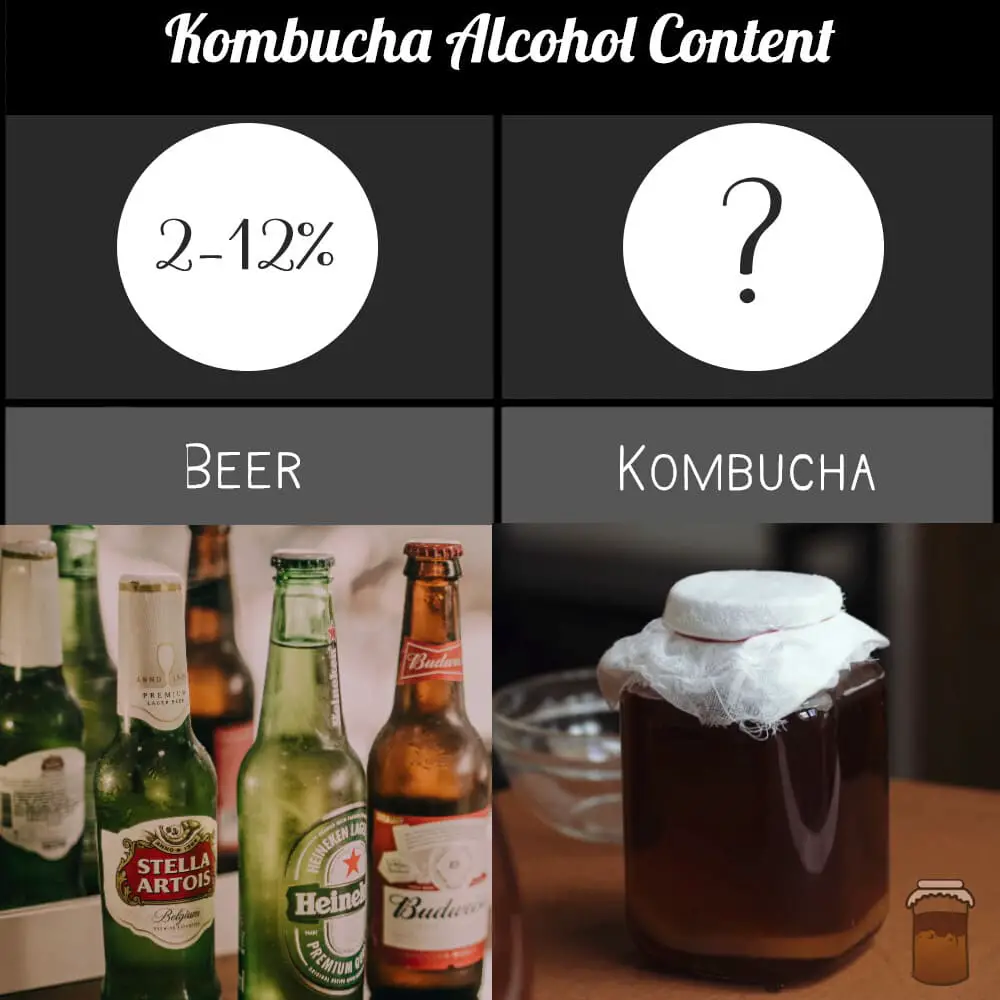
If you are here, it is because you have heard about the kombucha probiotics, and you want to know more about them, such as what those probiotics are and what effect they can have on your body, the benefits they bring, and if their consumption can get any risk.
As you know, the human body has bacterial flora that participates in the absorption of nutrients and defense against pathogens. Consuming kombucha allows you to keep this flora in better condition, leading to a healthier digestive system.
It also strengthens the immune system (reason why kombucha may be good for a cold), so consuming kombucha in the appropriate dose can lead to a healthy life; remember that one of the greatest treasures you can have in life is good health.
What are the probiotics in kombucha?
Probiotics are microorganisms that can contribute positively to health. The mechanism by which probiotics improve the health conditions of people is by preventing the growth of pathogens by competing with them for the binding sites between the host and nutrients necessary for growth and proliferation.
Under these premises, some of the probiotics found in kombucha are the following:
- Saccharomyces boulardii: a type of yeast that, in some tests, has shown promising results against bacteria such as Clostridium difficile, commonly involved in some types of diarrhea, such as using antibiotics. [1]
- Komagataeibacter xylinus: a member of acetic acid bacteria that produces cellulose by absorbing glucose and fructose, which can potentially prevent weight gain. [2]
- Lactobacillus ssp. It is a group of bacteria commonly found in dairy products such as yogurt and kefir, which has been shown to improve inflammation induced by Helicobacter pylori bacteria (associated with several gastrointestinal diseases). [3]
- Saccharomyces cerevisiae: is one of the yeasts present in the kombucha SCOBY, which had good results in the fight against Candida albicans, one of the most commonly responsible for yeast infections such as candidiasis. (check kombucha and yeast infections) [4]
And well, the list could go on since kombucha has a high percentage of acetic and lactic acid bacteria, the latter mainly being considered probiotics in general since they can resist the conditions surrounding our intestines. [5]
The SCOBY used in kombucha contains these probiotics and possibly others since its composition varies according to the climatic conditions of cultivation. Its consumption is safe and helps the bacterial flora.
How much probiotics are ingested?
The number of probiotics ingested in a glass of kombucha is enormous; a single drop already contains thousands or millions of these microorganisms.
To put it in context, an excellent probiotic supplement has about 10 billion CFU (Colony forming Units) per tablet. Now, one of the requirements for kombucha to be considered a probiotic food is having at least 1 million CFU per ml. [5]
As each culture is different, and the fermentation conditions and substrates are also different for each kombucha, having an exact number of probiotics consumed is extremely difficult, but at least now, you have a possible range based on the above.
What are the benefits of Kombucha probiotics?
The most significant benefit concerning probiotics is the prevention and maintenance of balance in the bacterial flora to avoid imbalances that cause or encourage the appearance of opportunistic pathogens.
A healthy intestinal microbiota favors the immune system and the better absorption of nutrients. Hence, the benefits are not only exclusive to the intestines but also a general contribution to our body. Many people say that drinking kombucha makes them feel better, and you won’t believe me, but I have an article about why kombucha makes me feel so good.
However, the benefits of kombucha go far beyond the capacity of probiotics themselves, as kombucha contains many metabolites that help the body in other functions beyond the microbiota, such as polyphenols that help in antioxidant activity.
Actually, the benefits of kombucha is a topic that should be treated in a dedicated article because although many benefits are attributed to it with the prevention and treatment of diseases ranging from diarrhea to cancer, there has been a lack of scientific studies in humans in the last 20 years. Want to see that article? Here you have the possible benefits of kombucha.
Drinks with similar probiotics
There are a few beverages with probiotics. You may see an entire article about kombucha substitutes by clicking the link.
Can the probiotics in kombucha affect me negatively?
Probiotics, as such, will not negatively affect your health since it would be a hypothesis contrary to the definition of probiotics, which, as we have told you, are good bacteria that help our body.
Whether the bacteria in kombucha can affect you is a different matter. Some cases of kombucha have been controversial, as it has been attributed as the starting point of developing a disease.
The problem is that in those cases, it has not been possible to isolate kombucha as the primary trigger variable of the disease, and we reach a point similar to the issue of benefits, and that is that there are no scientific studies in people that prove that kombucha can be harmful to the body.
That said, it is clear that when it is prepared at home without considering the rigorous safety standards, another type of unwanted bacteria could be contaminated, as with homemade mayonnaise, which may lead to a problem for people with weak immune systems.
Also, kombucha, an acidic drink, can corrode materials such as metal or ceramics; being possible that micro components of these materials leak into the liquid, which at the time of being ingested can generate poisoning problems, so you have to keep in mind the best containers to make and store kombucha.
This is the information we have for you about kombucha probiotics. You are cordially invited to continue informing you about the incredible world of fermented products.
References
[1] https://www.ncbi.nlm.nih.gov/pmc/articles/PMC2868213/
[2] https://www.ncbi.nlm.nih.gov/pmc/articles/PMC6488717/
[3] https://www.ncbi.nlm.nih.gov/pmc/articles/PMC6352136/






